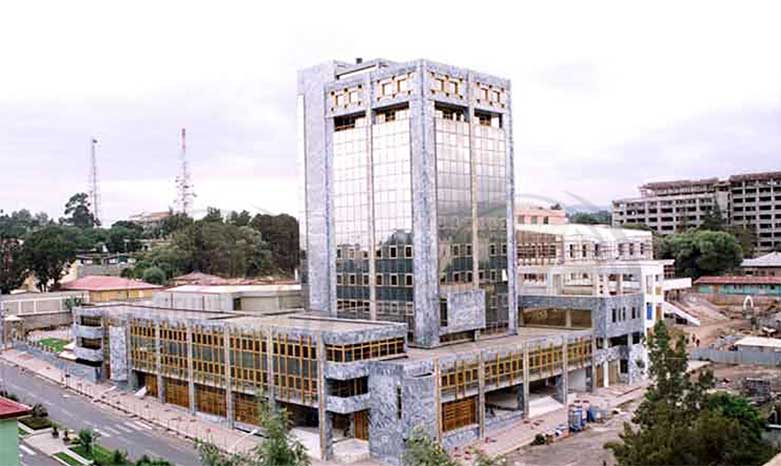
Nov 11 , 2023
By MUNIR SHEMSU ( FORTUNE STAFF WRITER )
Universal financial inclusivity remains elusive in Africa, with no countries reaching a 'mature level' while only five are labelled 'progressed' in the spectrum. Ethiopia along with a dozen other countries is labelled unranked for failing to provide data in the public domain and meet the minimum criteria of inclusivity.
The annual report by AfricaNenda, released last week, highlights the moderate continental progress in the year as 400 million adults do not have bank accounts and challenges of a well-developed digital public infrastructure persist.
Sabine Mensah, the deputy CEO of AfricaNenda, disclosed that insights from the report can allow countries with emergent payment systems, like Ethiopia, to fast-track into inclusivity by leveraging on experiences from the continent. She highlighted the importance of having responsive redress mechanisms to build functional relationships between operators and customers in newly emerging payment systems.
"Trust is at the core of inclusivity," she told Fortune.
Ethiopia has a low percentage of its transactions processed through instant payment systems at 0.3pc of the gross national income, facilitated solely through EthSwitch. This is despite the country being the sole recipient of coverage of a domestic payment system in Africa since last year, following a 2.33 million grant by the African Development Bank (AfDB) to upgrade its payment infrastructure.
An inclusive payment system (IPS) entails round-the-clock real-time transactions, through low-cost push in an open loop and multilateral and interoperable arrangements with the central bank maintaining a role in systems governance.
In Africa, over 1.3 trillion dollars was transacted in an inclusive payment system with more than 31 billion transactions across 32 payment systems. Seven countries have multiple IPSs with Ghana being the only country with cross-domain interoperability which allows users to transact across all financial institutions and operators.
The State of Inclusive Instant Payment Systems in Africa (SIIPS) report indicates progress across the continent over the past five years, with transactions climbing by 47pc in spite of 27 countries lacking domestic instant payment functionality.
The report points to expanding payment instruments, increasing use cases, boosting interoperability and the range of access channels to realise financial inclusion in Africa. It was financed by the Bill and Melinda Gates Foundation, the Rockefeller Philanthropy Advisors and the World Bank and launched with a two-day event where lively discussions on digital public infrastructure and the growth of financial inclusion took place at the United Nations Economic Commission for Africa (UNECA).
EthSwitch, which raised its capital to over three billion Birr last year, is one of the three payment systems that went live since the inaugural SIIPS report with plans to avail a national payment gateway system in Ethiopia within the week.
Yared Seyoum, director of strategy and change management at the 12-year-old share company owned by all banks in the country, indicated that the system is working to scale up its person-to-person (P2P) operations to enable retail payments of small amounts with hopes of achieving financial inclusion.
"We have a huge national responsibility," he told Fortune, underscoring that the company connects all financial institutions in the country.
Yared pointed to the digital national ID project as critical in creating valuable aliases to enable further projects like credit scores to expand the available services in the financial landscape. He indicated that the government's objectives in the digital landscape will require collaboration from the central bank, financial technology companies and commercial banks in the long run.
"Financial inclusion requires multisectoral engagement," he said.
The Company is currently working on enabling cross-border payments as a component of the nationwide digital transformation.
EthSwitch had obtained north of 329 million Br in revenues last year, facilitating close to 361,321 interoperable transactions and enabling over 44 billion Br in ATM services. It received an 8.34 million dollar grant from the Bill & Melinda Gates Foundation in the same year, recording close to 20 billion Br valued transactions through interoperability.
Members of payment system directorates from several African central banks were in attendance for the two-day event while former State Minister for Innovation & Technology Huria Ali opened the session.
According to Sabine, who was also the moderator for most of the discussions, the ease and speed in handling possible problems that may arise during transactions go a long way in creating a reliable digital financial ecosystem, with convenience playing a critical role in driving adoption.
A significant gender gap was observed in financial inclusion, with some countries like Cote d'Ivoire depicting an increase of the disparity to 27pc in recent years. The proportion hovers around six percent in mobile money accounts across the continent.
The Program Officer from the Bill & Melinda Gates Foundation, Zachary Kazaz, reiterated the growing gender gap in financial inclusion and revealed that a 60 million dollar fund (half of which will go to Africa) is dedicated to women in the digital economy and will be availed in the coming months for organisations and civil societies working to lessen the digital gender divide.
Suggestions to lower credential requirements were made by Dilwonberish Abera, senior program officer at the Foundation, to raise the number. An open-source fraud management system under the Foundation is in the works, according to Dilwonberish, who indicated technologies and stronger consumer protection laws to address the harsh blow of fraud for communities in the lower curve of the economy.
She stated: "The poor can't afford to lose money."
The report emphasises the importance of harmonising policies in the IPS landscape, with central banks playing a key role in onboarding stakeholders across the most successful payment schemes.
Archie Hess, CEO of Ghana Payment and Settlement Systems (GhIPSS), one of the five instant payment schemes grouped under the progressed level in the inclusivity spectrum, stressed the importance of fully interoperable systems and creating a segway for both informal and targets to foster adoption of digital payment systems.
"It has to penetrate every aspect of the economy," he stated.
Archie noted the role central banks in Africa must play in creating an enabling ecosystem through an effective regulatory scheme involving financial technology companies and establishing subsidiaries to manage payment systems.
The CEO stressed the importance of transparency and data availability to boost participants' capacities in the market, which has allowed fintech companies in Ghana to take over 62pc of real-time transactions.
"Private sector engagement is critical," he noted.
Harish Natarajan, practice manager at the World Bank on Financial Inclusion, echoed a similar sentiment of an active role by the central bank, emphasizing the power of oversight as different from regulation.
He explained that central banks play a significant role in regulating participants who enter and operate in the market, suggesting a centralized system but not a centralized control mechanism.
"Not every participant needs direct access," Harish stressed.
The World Bank, one of the contributors to the report, is working through the FASTT (Frictionless Affordable Safe Timely Transactions) project to accelerate the adoption of interoperable digital payments in Africa and across emerging markets.
The nearly 300-page SIIPS report was compiled via data from governments, development partners and hundreds of interviews with key stakeholders and users across several countries.
With only half of the adult population in the continent having access to domestic instant payment systems, the report points to the need for continued investments and technical assistance for more significant results.
While challenges of access barriers in connectivity, limited choices in use cases and affordability remain, the report suggests investments in interoperability, harmonization of regulation for cross-border payments, promotion of effective agent channels and several policy recommendations to bring about financial inclusion in the continent.
PUBLISHED ON
Nov 11,2023 [ VOL
24 , NO
1228]

Fortune News | Nov 14,2019

Fortune News | Oct 19,2019

Commentaries | Mar 01,2024

Fortune News | Jan 30,2021

Commentaries | Jul 13,2025

Fortune News | Aug 07,2021

Fortune News | Feb 18,2024

Commentaries | Jan 04,2020

Fortune News | Sep 26,2021

Viewpoints | Jul 27,2019

Dec 22 , 2024 . By TIZITA SHEWAFERAW
Charged with transforming colossal state-owned enterprises into modern and competitiv...

Aug 18 , 2024 . By AKSAH ITALO
Although predictable Yonas Zerihun's job in the ride-hailing service is not immune to...

Jul 28 , 2024 . By TIZITA SHEWAFERAW
Unhabitual, perhaps too many, Samuel Gebreyohannes, 38, used to occasionally enjoy a couple of beers at breakfast. However, he recently swit...

Jul 13 , 2024 . By AKSAH ITALO
Investors who rely on tractors, trucks, and field vehicles for commuting, transporting commodities, and f...

Jul 12 , 2025
Political leaders and their policy advisors often promise great leaps forward, yet th...

Jul 5 , 2025
Six years ago, Ethiopia was the darling of international liberal commentators. A year...

Jun 28 , 2025
Meseret Damtie, the assertive auditor general, has never been shy about naming names...

Jun 21 , 2025
A well-worn adage says, “Budget is not destiny, but it is direction.” Examining t...